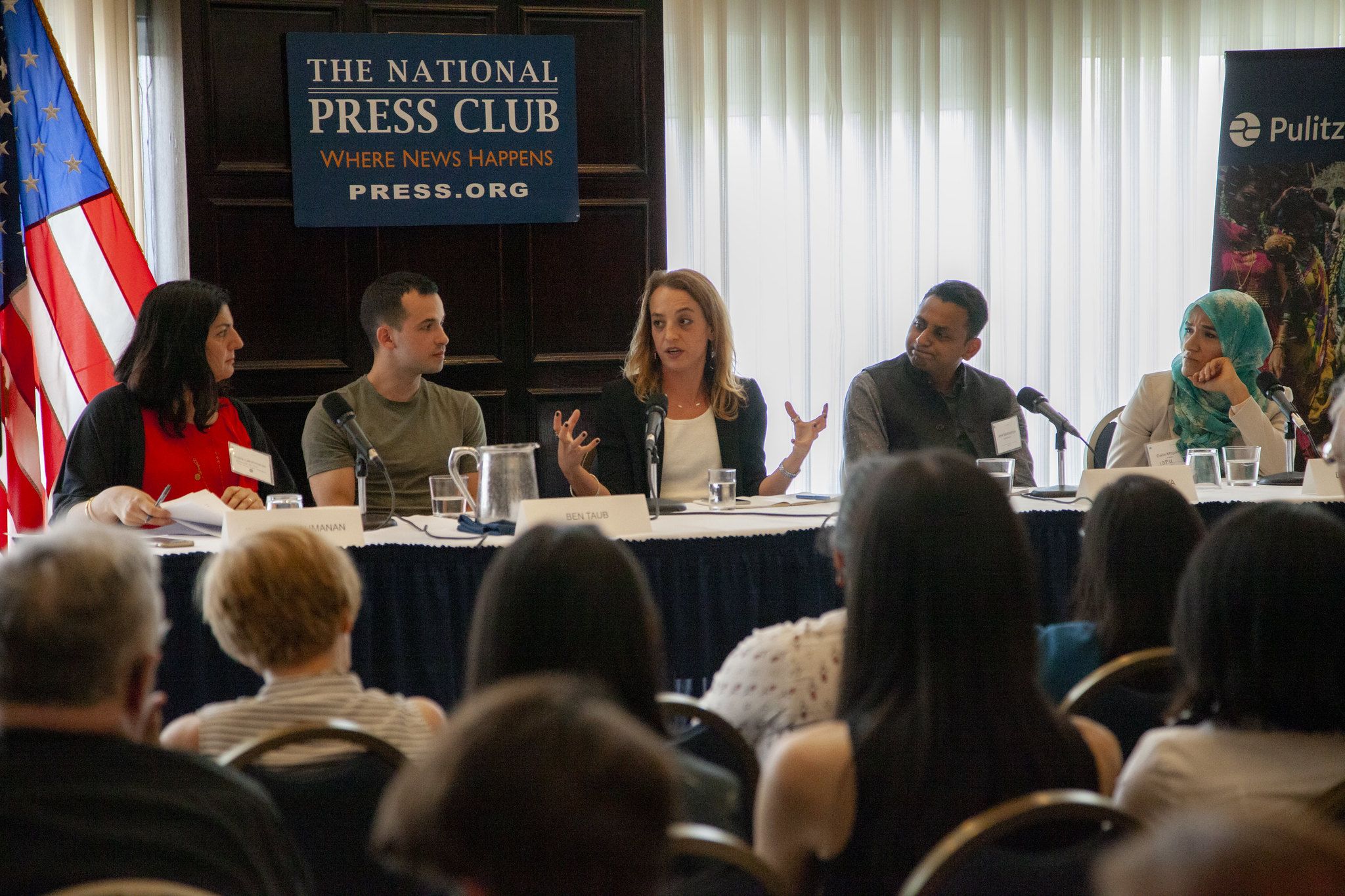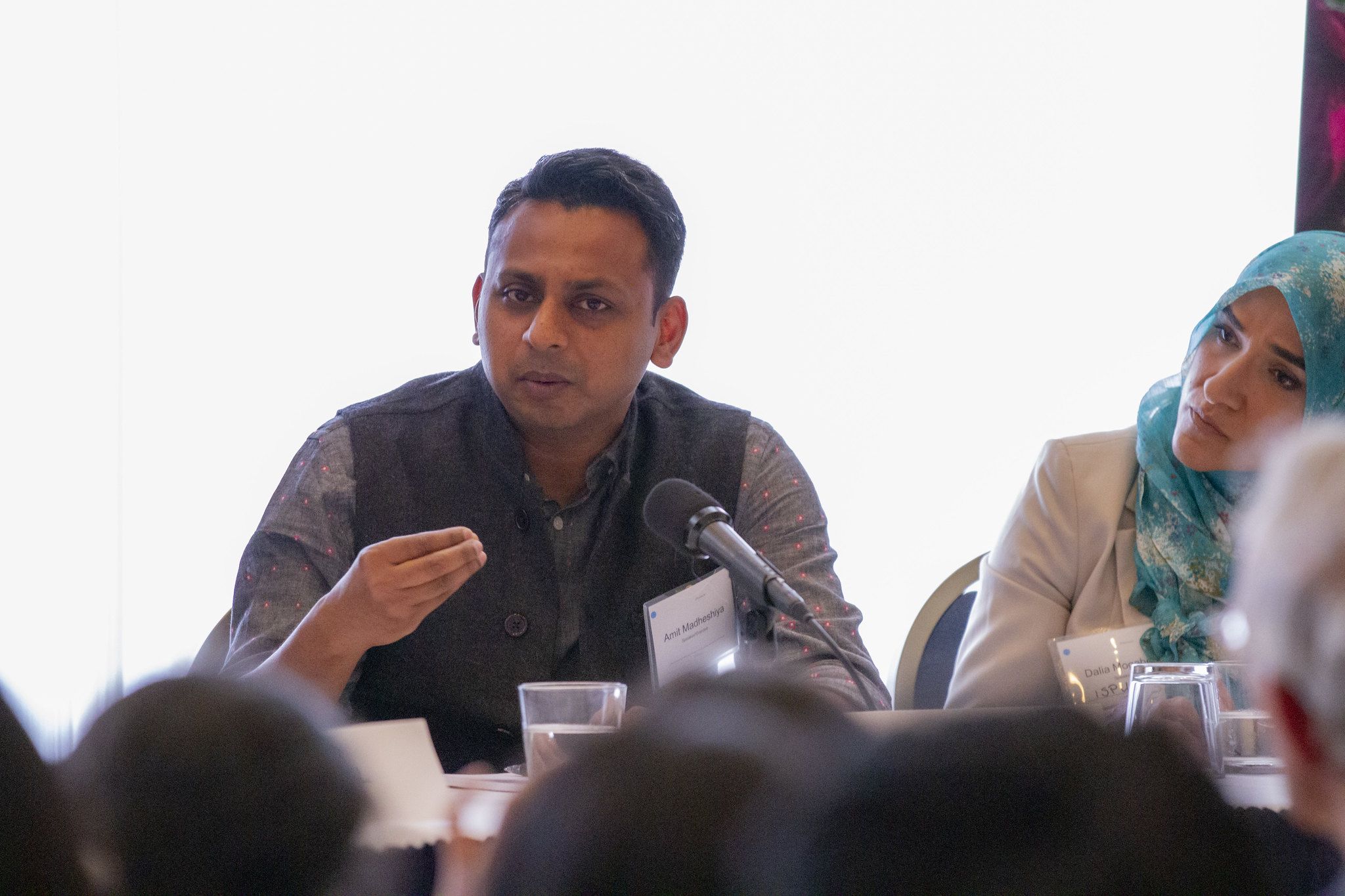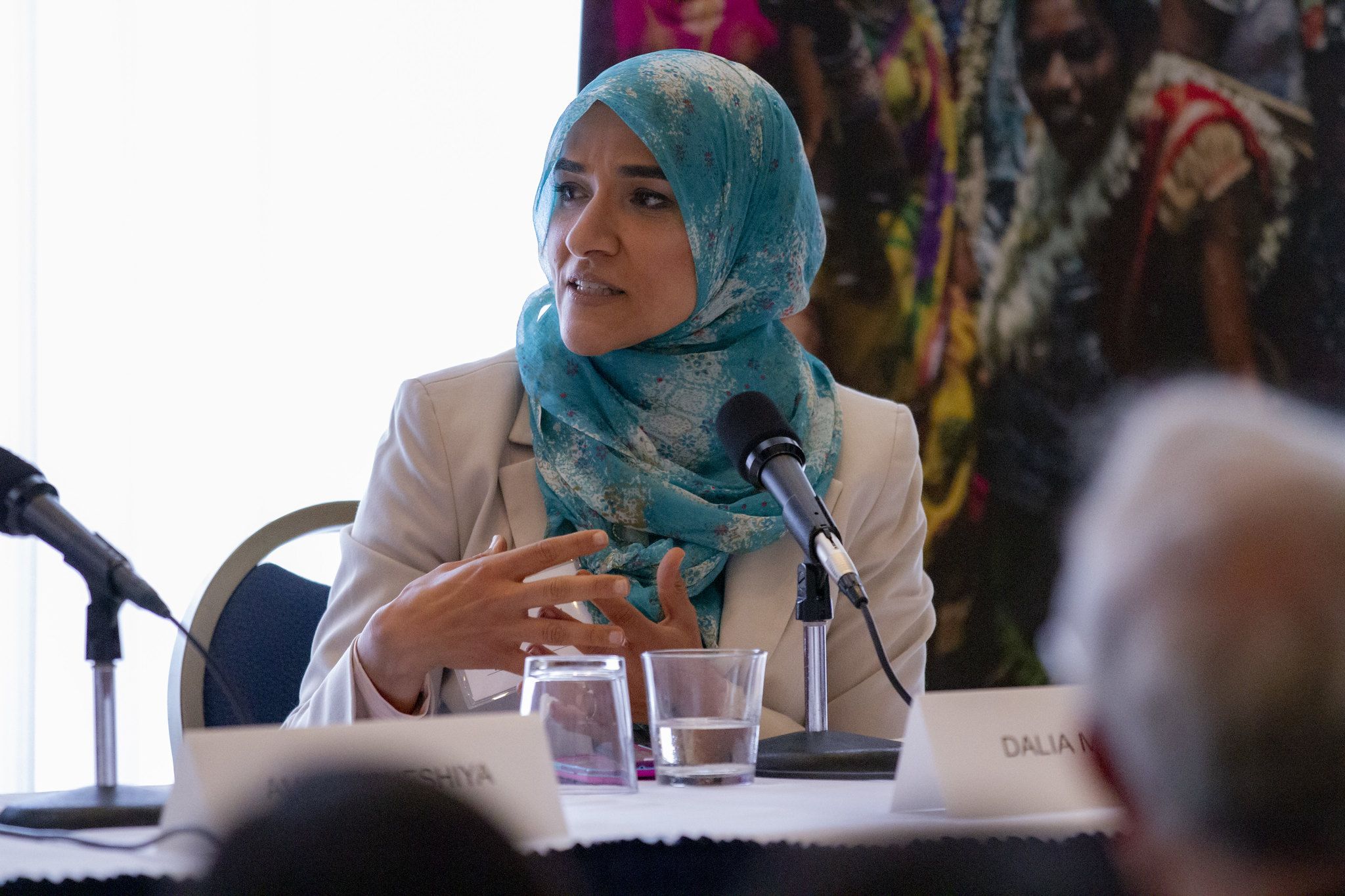“How would we cover this story if the perpetrator was a member of the majority?” asked Dalia Mogahed at the Beyond Religion panel on Religion and Fundamentalism.
Mogahed, research director at the Institute for Social Policy and Understanding, explained that this question is crucial in reporting on religious extremism—but often forgotten, as witnessed during the current rise in fundamentalism. From the United States to Nigeria, many claims have been made concerning the root of ideologically-based violence. All the while, researchers and journalists work to understand and define the intersection between religion and fundamentalism.
Pulitzer Center Executive Editor Indira Lakshmanan led a discussion in which panelists shared their knowledge of fundamentalism, as well as suggestions for a more informed future.
“I don’t think any religion teaches us to be so violent,” said Amit Madheshiya, co-director of The Hour of Lynching, a Pulitzer Center-supported documentary about the mob lynchings of Indian Muslims.
Madheshiya explained that 47 Indian Muslims have been lynched since 2014, the same year that Prime Minister Narendra Modi entered office. While many allege that Hindu extremism alone prompted the killings, Madheshiya believes that government inaction played a significant role.
“They know nothing is going to happen to them,” said Madheshiya. But, as a filmmaker, he feels he is in a position to prevent future lynchings.
Madheshiya added, “if we are keeping quiet … we are complicit in this kind of spectacle.”
In Nigeria, Boko Haram began as a religious movement geared toward ending corruption. However, journalist grantee Sarah Topol says those connections are far less common now.
“The children that I interviewed [within camps] … didn’t pray five times a day, or even once a day,” said Topol. “None of them are actually using religion the way that we would necessarily think that they would be, because most of it is a power struggle amongst themselves.”
Topol explained that religion did, in fact, encourage the rise of fundamentalism—but found that much of the religious ideology was left behind in the process.
Now, it’s possible that religion could assist in reintegrating former child soldiers, who she has heard referred to as “tainted, sinful … snakes in the grass.” Rather than divide, the cultural regard for religion could unite peers if religious leaders “can convince the community that these children are not responsible for the crimes they committed when they were indoctrinated by a group that is claiming to be religious,” said Topol.
“American media … does use the word terrorism almost exclusively to refer to Muslims, despite the fact that other acts would meet the definition,” said Mogahed, speaking about ISPU's recent research, which found that Muslim-perceived perpetrators get 770 percent more media coverage than non-Muslim-perceived perpetrators.
This occurs despite the fact that the majority of ideological violence in America involves non-Muslim perpetrators, according to Mogahed.
Journalist grantee Ben Taub of The New Yorker also explored the connections between religion and violence while reporting on ISIS.
“There were certainly hardcore Jihadis who entirely and comprehensively believe in this ideology and recruited on its basis,” said Taub. “But with these guys it’s not just capturing the institution, it’s knowing how to run it.”
Though religion in itself is often the scapegoat for the crimes of the self-proclaimed Islamic State, Taub explained that the combination of “the cosmic certainty of radical Jihadism with the power of police state” truly elevated the influence of ISIS.
Because the future of religion as it relates to fundamentalism is indeterminate, individuals must be vigilant when creating and consuming information about the intersection of the two. In this panel, speakers explained that equating correlation and causation generates issues within cultures, which are inherently more than the acts of violence or religious beliefs that appear to unite them.
Until there is a comprehensive, defined relationship between religion and fundamentalism, “having healthy skepticism about how an incident is being described” could lead to better understanding of the complex intersection, said Mogahed.


